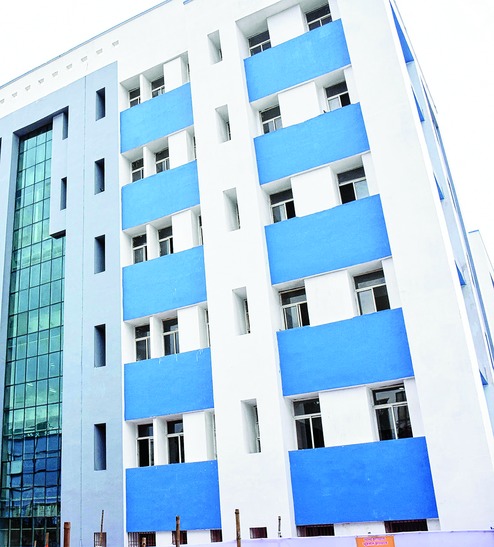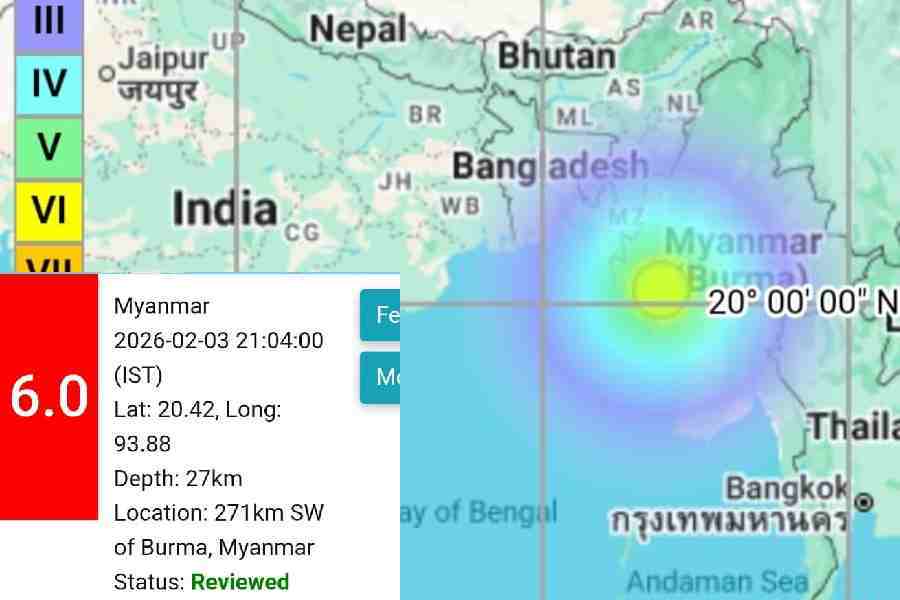
Ranchi, Sept. 8: The state health department doesn't know how many nursing homes and hospitals conduct surgeries without the provision of intensive care units (ICUs) in Jharkhand but would now find out in the wake of a day-old Supreme Court order that held a Bengal doctor negligent for performing a surgery at a hospital without an ICU.
The ruling in a 23-year-old case in Calcutta where a woman died after a hysterectomy at a nursing home without an ICU potentially opens all private and government-run hospitals to the charge of negligence if they operate but don't have an ICU.
Jharkhand director in-chief of state health department Dr Sumant Mishra told this paper in response to the apex court's ruling that they held a preliminary discussion in their department this morning but needed a copy of the apex court order in detail to be able to properly interpret the judgment.
Asked for a ballpark figure on how many health centres conduct surgeries without having an ICU, Dr Mishra couldn't say. "All big hospitals in Ranchi, Jamshedpur or other cities in Jharkhand that call themselves superspeciality do have ICUs, but the issue is more with small clinics or nursing homes that have mushroomed over the years.
"Unfortunately, the health department doesn't have a substantial profile of all establishments, big or small, to be able to easily identify the ones without an ICU. The SC ruling has now spurred the need to do so."
If the Supreme Court ruling covered all heal hubs, many government hospitals, including sadar hospitals in all districts, have to immediately stop operations, including Caesareans.
"This is our biggest concern. Though we have plans to set up ICUs in all 24 sadar hospitals, it will take sometime. Stopping operations will pose a big challenge as government health centres can't turn away any patient. If Caesareans stop, institutional delivery will be hit," Dr Mishra said.
In 2012, Jharkhand adopted Clinical Establishment Act. Under this, a hospital, clinic or nursing home is mandated to register itself first with state health department. One has to give details of facilities available, beds, waste disposal facility, and host of other details. Unfortunately, its implementation has been tardy in the extreme.
If a source in state health department is to be believed, anywhere between 2,500 and 3,000 registrations statewide have occurred so far, but the numbers of actual health facilities is much more.
In Ranchi, civil surgeon Dr S.S. Harijan said a little over 400 registrations have been taken up in his district under the Act till date but didn't rule out that many clinics and nursing homes were unregistered.
"We do send our people posing as patients for surprise raids to force for registrations. But in rural areas, it is tough to keep track," he pleaded.
Health services director Dr Mishra said their first priority would now be to speed up registration under Clinical Establishment Act to ascertain how many hospitals have ICUs and simultaneously send field inspection teams to verify claims.
Asked for his views, Indian Medical Association (Jharkhand) president A.K. Singh welcomed the Supreme Court ruling for the long term but cited immediate challenges.
"Our Delhi unit will send us the detailed SC order in a couple of days. But, I see some chaos in coming days. First, government-run family planning programmes such as vasectomy and tubectomy will be hit. Secondly, in remote villages, many nursing homes and clinics don't have ICUs but operate during emergency situations, say for example, in an appendix case. But now, where will the patient go if the nearest hospital doesn't have an ICU? Common people in rural areas will suffer where healthcare is in tatters," he said.










